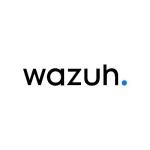What is our primary use case?
We use Splunk Enterprise Security for various security use cases, including writing correlation searches. This has significantly improved both our use cases and correlation searches. We can leverage existing resources, making modifications as needed, rather than starting from scratch each time. Splunk Enterprise Security provides diverse use cases across different environments, including AWS, Azure, and multi-cloud setups, while also integrating with Microsoft Sentinel. Additionally, we can integrate Splunk's service orchestration product for further automation. Overall, this allows us to automate tasks that security analysts previously performed manually, such as reviewing incident dashboards. We can fine-tune alerts based on analyst feedback. Splunk's research team ensures that use cases are updated with the latest security content, enabling us to understand and implement necessary steps while customizing them to fit our company's needs. This is what makes Splunk Enterprise Security so popular; it streamlines processes compared to legacy security products that often rely on manual scripts. Clients, including government agencies and banks, are transitioning to Splunk Enterprise Security due to its reduced training requirements and comprehensive features. Everything is consolidated, simplifying training and certification. Additionally, integrating Splunk's service orchestration product further automates tasks and improves response times. The substantial investment in Splunk indicates its staying power; no other product on the market currently offers comparable capabilities. Cisco's acquisition of Splunk reinforces its potential for success, combining APM, data logging, and security portfolios. In one financial project involving 600,000 users, we were able to monitor all incoming traffic, identify security activities, and distinguish between legitimate and malicious traffic, including phishing attacks and potential identity-based threats. Splunk enables tracking individual identities, crucial for detecting attacks where perpetrators hide behind compromised identities, often leading to data breaches and other security incidents.
We implemented Splunk Enterprise Security to assist with AWS security, which includes GuardDuty, CloudTrail, CloudWatch, and Inspector. These AWS components generate compliance and security alerts, which we correlate and use to create dashboard reports and identify security events for various use cases. We then enable the out-of-the-box use cases and send notable events to the dashboard. The implementation is currently in its early stages.
How has it helped my organization?
Splunk Enterprise Security operates based on incoming data, making monitoring multiple cloud environments relatively simple due to data availability and integration capabilities. Data from cCloudRail, CloudWatch, Azure, and other diverse environments can be incorporated. While occasional patching might be necessary, most integrations are readily available, offering extensive coverage without customization. Specific customizations might still be required, but most functionalities are pre-built, leveraging code developed by Splunk. This efficient approach involves analyzing data from vendors like Palo Alto and applying add-ons to apply code and automate parsing.
Our visibility into various environments depends on how much data we incorporate; therefore, the more we scan, the better our visibility.
Splunk Enterprise Security's insider threat detection capabilities act as a secondary approval and vetting process, helping our organization ensure there are no unauthorized users.
The MITRE ATT&CK framework allows us to identify criticality levels, helping us respond to incidents. We might integrate incident response with a REST API, where a notable event triggers the creation of a ServiceNow ticket. Information flows from ServiceNow back to Splunk, which then feeds other systems, enabling bidirectional incident management. These processes are largely out-of-the-box, as Splunk integrates well with ServiceNow, except for any customizations. We understand the data integration requirements and leverage Splunk's extensive integration capabilities.
Splunk Enterprise Security does a good job of analyzing malicious activities and detecting breaches. The amount of information the research and threat detection teams receive from Splunk enables faster threat detection of up to 60 percent, eliminating the need to consult numerous sources. This efficiency is a key benefit of Splunk, as its significant investment in security allows for expedited processes.
I have seen the older legacy product where they have this manual process to identify issues, run scripts, try to identify the output, and then go through ten systems to collect data. This could take days. Now, with Splunk, we have everything correlated with multiple use cases, and we have a correlation search between multiple systems, along with application data. Splunk Enterprise Security can stitch all this information together and show it in a single pane of glass, which makes decision-making faster and allows us to focus on the relevant issues instead of wasting time on non-relevant ones. They have done this well.
Splunk Enterprise Security significantly reduced our alert volume. The initial challenge was dealing with a legacy IBM system that generated a massive amount of unfiltered noise, making it difficult to identify relevant events to send to the incident dashboard. This process was time-consuming and inefficient, and the value of the system wasn't apparent. To address this, we fine-tuned both the SOAR system and Splunk by applying filters and conditions to focus on relevant data. Ultimately, Splunk reduced the alert noise from 1,000 events in two hours down to ten, which were then grouped into a single notable event. Despite potentially having hundreds of background events, Splunk condensed this information into a single, actionable item, allowing us to focus on investigating the most relevant issues.
Splunk Enterprise Security accelerates our security investigations by reducing noise, allowing us to focus on relevant use cases. Everything is categorized as high, medium, or low priority, and people immediately start investigating high-priority issues connected to PagerDuty. Sometimes, this leads to on-call situations, sometimes immediate action. Service orchestration and playbook scenarios enable automated responses, like instantly blocking unauthorized access to a system. The possibilities for security use cases with playbooks and service orchestration are vast, and I'm excited to explore them further in the coming days.
The dashboards and reporting capabilities help to aid our security analysis.
We have integrated Splunk Enterprise Security with various services to streamline our security operations. This integration allows us to leverage diverse data sources for creating lookups, data models, knowledge objects, and regular expressions. By automating the development of use cases and regular expressions, we can apply them to data more efficiently, enabling faster implementation and analysis. This approach enhances our ability to detect and respond to security threats effectively.
Splunk Enterprise Security has enhanced our organization's security posture by providing comprehensive security compliance dashboard reports.
What is most valuable?
I appreciate how Splunk Enterprise Security connects users to the research team and threat documentation, providing access to current events impacting other clients, security vulnerabilities, and relevant use cases. The platform's daily updates offer valuable insights for enhancing our security posture.
Splunk Enterprise Security allows us to create custom dashboards by changing fonts and modifying widgets. Those familiar with XML coding can further personalize dashboards to align with frameworks such as MITRE. Alternatively, we have the option to use the pre-built dashboards.
What needs improvement?
I've noticed that onboarding data from various multi-cloud sources and diverse products, such as security network devices, can be challenging. Although Splunk has simplified data onboarding with features like data managers, they need to improve their out-of-the-box parsing capabilities. While they've made significant progress, covering about 70 percent of common products, there's still a 30 percent gap where manual configuration is required. This forces us to spend time understanding and writing custom parsing rules instead of focusing on data analysis. With Splunk's recent acquisition by Cisco, I'm hopeful they will prioritize enhancing this functionality and increasing their coverage to 90 percent or more.
I want to see Splunk Enterprise Security dashboards incorporate more features, such as out-of-the-box AI and user behaviour analytics, which are accessible within a single dashboard.
The technical support response time has room for improvement.
For how long have I used the solution?
I have been using Splunk Enterprise Security for three years.
What do I think about the stability of the solution?
Splunk Enterprise Security has stability issues, especially with large data volumes, increased data intake, complex dashboards, custom models, and processing that significantly impact performance. Many customers experience this; even with demos using small datasets, performance degrades with millions of data points. This necessitates capacity planning, dedicated teams, and enforced best practices. These practices include restricting complex searches, blocking problematic users, and providing training to prevent performance degradation. Constant vigilance and proactive measures are crucial to maintaining a stable Splunk Enterprise Security environment. I would rate the stability of Splunk Enterprise Security five out of ten.
What do I think about the scalability of the solution?
I would rate Splunk Enterprise Security's scalability six out of ten. We need to add more shared CPU memory and increase the capacity, and scaling requires a lot of planning and effort.
How are customer service and support?
Splunk's support quality has declined in the past five years. Response times are now slower, and resolving an issue can take weeks. Submitting a ticket and connecting with the appropriate support agent often requires numerous emails and calls.
How would you rate customer service and support?
Which solution did I use previously and why did I switch?
To improve security coverage and user experience, we replaced our outdated legacy solution with Splunk Enterprise Security.
How was the initial setup?
Our Splunk Enterprise Security cloud deployment utilizes a DevOps approach with a fully automated CI/CD pipeline. This automation has significantly improved our deployment speed, reducing the process from a week to a few minutes. Changes are made in the development environment and then automatically pushed to production after a click-through approval process. This streamlined workflow eliminates the previous manual process and associated delays, resulting in a faster and more efficient deployment cycle.
What's my experience with pricing, setup cost, and licensing?
Splunk Enterprise Security's pricing is based on data volume, which generally suits large enterprises.
What other advice do I have?
I would rate Splunk Enterprise Security eight out of ten.
Splunk is widely used across larger organizations. While large organizations often have extensive teams dedicated to Splunk projects and upgrades, smaller organizations can also use Splunk, taking advantage of more affordable pricing options like the free tier for limited data. Cost isn't a significant concern for larger organizations, who prioritize Splunk's security features and are willing to invest in its capabilities.
Splunk Enterprise Security is deployed across all departments, processing millions of data points. Over 500 people manage this data: building dashboards and reports, working with Enterprise Security, discussing use cases, and creating custom data models. This represents a massive effort for any large organization where every department utilizes Splunk.
Government departments are transitioning to Splunk, with daily onboarding increasing the current user base of 5,000.
Because the deployment is cloud-based, the Splunk DevOps team handles maintenance.
Splunk offers a resilient SIEM solution with comprehensive capabilities for research and a wide range of use cases. It is constantly updated, ensuring it remains a valuable and comprehensive SIEM package.
I recommend Splunk Enterprise Security. It is an excellent tool widely used by many organizations, making it a valuable choice for security information and event management.
Which deployment model are you using for this solution?
Public Cloud
If public cloud, private cloud, or hybrid cloud, which cloud provider do you use?
Amazon Web Services (AWS)
Disclosure: PeerSpot contacted the reviewer to collect the review and to validate authenticity. The reviewer was referred by the vendor, but the review is not subject to editing or approval by the vendor.























